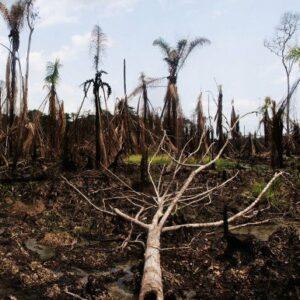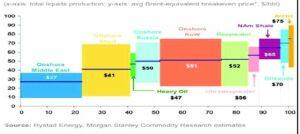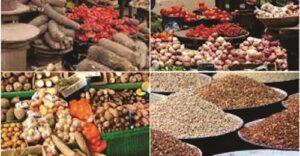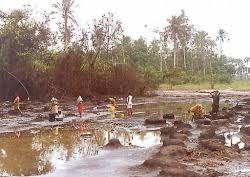
10 Factors affecting Supply of goods and services in Nigeria
Factors Affecting Supply of Goods and Services in Nigeria – The supply of goods and services is a key component of any economy. It refers to the amount of a product that producers are willing and able to sell at a given price over a particular period of time. The factors affecting supply are crucial determinants of business activity and economic performance.Information Guide Nigeria
In Nigeria, the supply of goods and services is influenced by various structural, institutional, and regulatory factors. Understanding these factors provides insight into the challenges and opportunities facing Nigerian businesses and policymakers. This article will examine 10 key factors impacting the supply of goods and services in the Nigerian context.
👉 Relocate to Canada Today!
Live, Study and Work in Canada. No Payment is Required! Hurry Now click here to Apply >> Immigrate to CanadaBroadly speaking, the determinants of supply can be categorized into factors affecting firms’ willingness to supply and factors impacting their ability to supply. Willingness to supply is driven by the incentive to produce and sell goods and services, which is principally determined by the potential selling price. The higher the price, the more willing producers are to supply. The ability to supply depends on access to the necessary inputs and technologies for production.
Some of the factors we will explore include resource availability, production costs, competition, government policies, infrastructure, insecurity, corruption, access to credit, and climate/geography. Gaining a robust understanding of how these forces shape supply conditions provides a framework for boosting output and productivity in the Nigerian economy.Supply of goods and services
10 Factors affecting Supply of goods and services in Nigeria
1. Resource Availability

Photo Source: Peace Insight
A basic prerequisite for supplying goods and services is access to the necessary resources, raw materials, and intermediate inputs. Nigeria is endowed with extensive natural resources, including oil, gas, various minerals, and agricultural resources. However, the supply and quality of basic inputs like energy, water, and transport facilities are often inadequate and unreliable. Deficiencies in complementary resources limit firms’ ability to efficiently produce at maximum capacity. Enhancing resource availability by upgrading infrastructure and production capabilities would support higher supply.
Read Also: Top 15 Business Schools in the World for Executive MBA
2. Production Costs

Photo Source: The Nation Newspaper
The costs incurred by firms in the production process are a major determinant of supply. When the costs of raw materials, labor, energy, capital, and other inputs increase, companies are less willing and able to supply goods and services. Also, high production costs in Nigeria stem from underdeveloped infrastructure, inefficient processes, and corruption. Reducing production costs by improving operational efficiency makes it more profitable for firms to increase supply.Top 15 AI Apps for Image and Articles
3. Competition

Photo Source: The Nation Newspaper
The extent of competition in a market impacts firms’ incentives and capabilities to supply products. Robust competition between providers forces companies to be more innovative and cost-efficient to supply competitively priced goods. However, limited competition means firms can get away with inefficient production and insufficient supply. Boosting competitive forces through appropriate regulations results in greater supply as companies strive to meet market demand.Top 15 Engaging Radio Programs in Nigeria
Read Also: Top 15 Best Business Classes in Nigeria
4. Government Policies

Photo Source: YourDictionary
Government policies and regulations shape the business environment and profoundly influence supply conditions. Taxation, subsidies, trade policies, sectoral regulations, and monetary policy all impact costs, incentives, and capabilities for domestic producers. In addition, supportive policies that reduce regulatory burdens and encourage investment and efficiency are crucial for unlocking higher supply capacity in the Nigerian economy.
👉 Relocate to Canada Today!
Live, Study and Work in Canada. No Payment is Required! Hurry Now click here to Apply >> Immigrate to Canada5. Infrastructure

Photo Source: Dataphyte
The availability and quality of infrastructure such as roads, ports, rail, power, and telecoms determine firms’ ability to reliably and cost-effectively transport inputs and outputs. In addition, Nigeria’s strained infrastructure raises logistics expenses and supply chain inefficiencies. Upgrading critical transport, power, and internet infrastructure would boost productivity and supply capacity.Dollar to Naira
Read Also: 15 Best Business to Start in Nigeria with Small Capital
6. Insecurity

Photo Source: Premium Times Nigeria
Prevalent insecurity in forms such as insurgency, kidnapping, armed robbery, and banditry disrupts production and distribution operations. Insecurity hinders domestic supply by preventing access to production sites, raising operating costs, and creating uncertainty. Tackling insecurity by improving law and order enables businesses to safely undertake production and transportation activities.JAMB Result
7. Corruption

Photo Source: The Guardian Nigeria
Corruption in official processes often compounds other obstacles such as inadequate infrastructure. Bribery, complex bureaucracy, and exploitative officials increase costs and delays for producers. Also, curbing corruption enhances transparency and efficiency, reducing the burden on businesses to supply goods and services.NYSC Portal
Read Also: 15 Best Banking and Financial Sites in Nigeria
8. Access to Credit

Photo Source: The Guardian Nigeria
Limited access to affordable credit and financing hinders firms’ ability to fund investments in expanded production. In addition, high lending rates and stringent collateral requirements in Nigeria’s financial system restrict producers’ capital for enhancing supply capacity. Improving credit access through reforms enables businesses to invest in the latest technologies and boost output.Good Morning my love Messages
9. Climate and Geography

Photo Source: NIGERIA – Weebly
Nigeria’s climate and geographic characteristics impact agricultural yields, hydroelectric power potential, and transport connectivity. Also, constraints such as desertification, flooding, poor road connectivity, and power shortages in different regions affect productivity and supply capacity. Targeted adaptations and investments to overcome region-specific climate and geographical challenges support higher, more resilient supply.
Read Also: 15 Best business to do in Northern Nigeria
10. Skills and Technology

Photo Source: World Bank
The knowledge, skills, and technology available to producers shape their capabilities to supply goods efficiently. Low education levels and technological know-how in Nigeria’s industrial and agricultural sectors result in underdeveloped production capabilities. Also, upgrading skills and technology through vocational programs, R&D incentives, and infrastructure modernization bolsters productivity and domestic supply.Romantic Love Messages for her
Read Also: 10 Best Businesses to do After Retirement in Nigeria
Conclusion
Supply conditions in Nigeria are influenced by an array of factors including production costs, competition, government policies, infrastructure, insecurity, corruption, access to credit, climate and geography, and skills and technology. Additionally, alleviating constraints across these areas is essential for catalyzing growth in domestic output and productivity.
Also, targeted reforms and investments to improve the business environment provide a platform for Nigerian producers to supply higher volumes of quality, competitively-priced goods and services. Also, upgrading infrastructure, skills, technologies, and access to critical inputs enhances capacity and efficiency. Maintaining policy consistency and curbing corruption also encourages long-term supply growth.JAMB Portal
In addition, boosting domestic supply supports import substitution, job creation in manufacturing and agriculture, and more sustainable economic development. As Nigeria continues tackling its supply-side challenges, harnessing the country’s resources and capabilities can unlock greater prosperity. A concerted focus on the key determinants of supply provides a roadmap for realizing Nigeria’s immense potential.
Check JAMB Result
Check and Confirm: How much is Dollar to Naira


